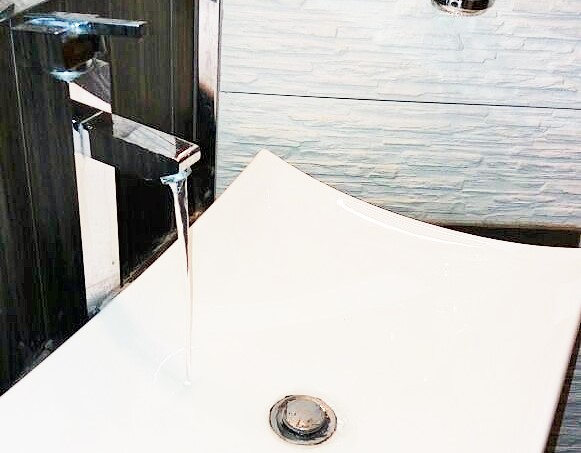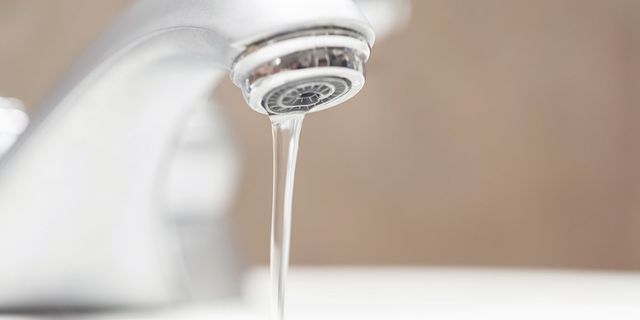Efficient Techniques for Addressing Low Water Pressure in Your Home
Efficient Techniques for Addressing Low Water Pressure in Your Home
Blog Article
In this article on the next paragraphs you'll find a bunch of brilliant guidance pertaining to 9 Reasons for Low Water Pressure in Your House.

Low tide stress in your house can be a discouraging trouble, affecting every little thing from bathing to washing meals. If you're experiencing weak water flow, there are several feasible causes and services to check out. In this overview, we'll talk about typical reasons for low tide stress and practical steps to address the issue properly.
Introduction to Low Tide Stress
Low tide pressure happens when the circulation of water from your faucets, showers, and other fixtures is weak than usual. This can make daily jobs much more difficult and less efficient. Comprehending the reasons for low water pressure is crucial to finding the best remedy.
Usual Reasons For Low Tide Stress
Faulty Pressure Regulators
Pressure regulatory authorities are in charge of keeping constant water pressure in your house. If they malfunction, it can result in low tide stress or irregular flow throughout your house.
Municipal Water Issues
Occasionally, the issue exists outside your home. Community water supply problems, such as main line leakages or upkeep job, can temporarily decrease water pressure in your area.
Pipe Obstructions
With time, pipelines can become clogged with mineral deposits, debris, or particles, restricting the flow of water. This is a typical issue in older homes with galvanized steel pipes.
Deterioration
Deterioration within pipes can result in leakages and lowered water stress. Corrosion buildup can constrict water flow, specifically in aging plumbing systems.
Just How to Detect Low Tide Stress
Checking Pipelines
Evaluate noticeable pipelines for indications of leaks, deterioration, or obstructions. Focus on any kind of unusual audios, such as banging or rattling pipes, which might suggest concerns within the plumbing system.
Consulting with a Plumber
If you're incapable to pinpoint the root cause of low water stress, take into consideration hiring a professional plumber to carry out a complete evaluation. They can determine underlying problems and recommend suitable options.
Inspecting Faucets and Components
Begin by checking the water pressure at different taps and fixtures throughout your home. If the issue is separated to particular locations, it may show localized troubles.
DIY Solutions to Fix Low Tide Stress
Flushing Hot Water Heater
Sediment accumulation in the hot water heater can limit flow and lower effectiveness. Purging the tank periodically aids eliminate debris and keep optimal performance.
Inspecting Pressure Regulatory Authority
Ensure that the pressure regulator is functioning properly. Changing or replacing the regulatory authority can aid recover correct water stress throughout your home.
Cleansing Aerators and Showerheads
Natural resources can accumulate in aerators and showerheads, reducing water circulation. Eliminate and clean these parts consistently to boost water pressure.
Clearing Up Clogs in Piping
For minor obstructions, try utilizing a plumbing snake or chemical drain cleaner to clear obstructions in pipes. Beware when making use of chemicals and comply with safety and security guidelines.
When to Call a Specialist Plumber
If DIY efforts stop working to fix the concern or if you suspect considerable plumbing issues, it's finest to seek help from a licensed plumber. They have the knowledge and tools to address intricate concerns safely and efficiently.
Preventive Measures to Keep Water Pressure
Installing a Stress Booster
Think about installing a stress booster pump to improve water stress in locations with continually low circulation. This can be particularly useful for multi-story homes or homes with high-demand fixtures.
Tracking Water Use
Be mindful of water use habits and stay clear of ill-using the plumbing system. Straightforward modifications, such as staggering showers and laundry tons, can help preserve ample water stress.
Normal Upkeep
Arrange routine maintenance for your plumbing system to prevent issues such as corrosion, leakages, and blockages. Resolving minor issues early can help stay clear of even more significant repairs later.
Conclusion
Managing low water stress can be discouraging, but recognizing the underlying causes and carrying out suitable remedies can restore optimum flow throughout your home. Whether it's cleaning up aerators, checking pipelines, or consulting with a plumber, taking positive actions can guarantee a stable supply of water for your day-to-day needs.
How to Fix Low Water Pressure In Your Home
Municipal Water Supply Issues
Scheduled maintenance, high demand, and water main breaks are all potential causes for low water pressure within a city or county’s water lines. While there’s not much you can do to personally fix a problem with your city or county’s water supply system, you can play a big role in documenting the issue and alerting those who can.
How to fix it:
Ask your neighbors if they are experiencing any issues with low water pressure. If multiple homes are affected, it’s likely related to the city’s water line. Contact the local Water Authority to see if there is any maintenance taking place that might be affecting your supply. Also let them know of your specific issues. If other homeowners report the same issues, they’ll know that there could be a larger issue to look into. Faulty Fixtures
A damaged or clogged shower head, faucet or appliance is the first thing we’d suggest checking, especially if low water pressure appears to be isolated to a specific area of your home.
How to fix it:
First, turn off the main water supply to your home. Check the affected appliances for build-up or debris. In the case of a faucet, you can simply unscrew the aerator at the tip of the faucet. Showerheads should be fully detached from the water pipe. While the appliances are detached, you may want to check the water supply to determine if the fixtures were in fact the issue. To clean, soak the showerhead or aerator in vinegar and brush off any visible debris. Reattach the fixtures and check the water pressure again. If it is still low, there is likely a deeper issue at hand, which can be determined by a professional plumber. Pipe Obstructions
Mineral deposits, rust or other debris within water pipes can lead to blockages or corrosion over time.
How to fix it:
When you think of a clog, you probably think of a drain clog. While there are many DIY solutions to clearing a drain, clogs in a water pipe will almost always require the help of a professional plumber. A plumber will be able to locate the affected pipe and clean out any debris or mineral deposit buildup. In severe cases, the pipe may need to be replaced. Your plumber might also recommend a water softening system to remove the minerals from your home’s water supply that can contribute to pipe blockages over time.
Plumbing Leak
Undetected water line leaks can divert water away from your residential pipes, reducing the water pressure in your fixtures.
How to fix it:
Check your water meter by turning off all water sources and monitoring the meter for any movement, which could be a clear indicator of a potential leak. Check all visible pipes for signs of leaking, including water stains, active dripping or damp spots around the pipe. Inspect fixtures, including faucets and showerheads, for any drips. Test the pressure but recording the pressure with the main water valve shut off. Leave off for a few hours and test again. A significant drop in pressure is a clear sign of a leak. https://kiddcoplumbing.com/plumbing-blog/how-to-fix-low-water-pressure/

I'm just very eager about Low Water Pressure in the House? and I hope you liked the piece. Sharing is caring. Helping others is fun. We cherish your readership.
Click Here Report this page